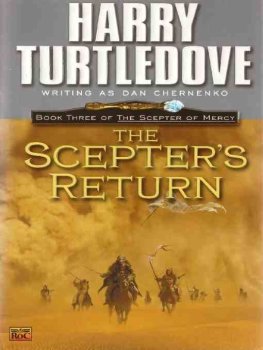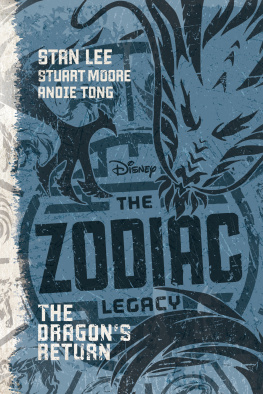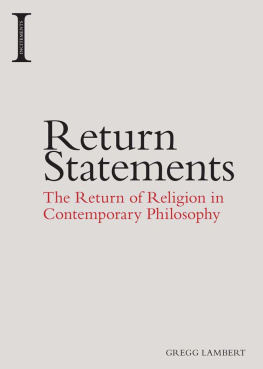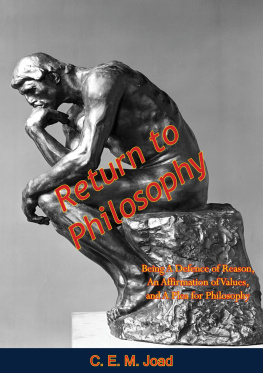Dan Chernenko - The Scepter_s Return
Here you can read online Dan Chernenko - The Scepter_s Return full text of the book (entire story) in english for free. Download pdf and epub, get meaning, cover and reviews about this ebook. genre: Romance novel. Description of the work, (preface) as well as reviews are available. Best literature library LitArk.com created for fans of good reading and offers a wide selection of genres:
Romance novel
Science fiction
Adventure
Detective
Science
History
Home and family
Prose
Art
Politics
Computer
Non-fiction
Religion
Business
Children
Humor
Choose a favorite category and find really read worthwhile books. Enjoy immersion in the world of imagination, feel the emotions of the characters or learn something new for yourself, make an fascinating discovery.
- Book:The Scepter_s Return
- Author:
- Genre:
- Rating:4 / 5
- Favourites:Add to favourites
- Your mark:
- 80
- 1
- 2
- 3
- 4
- 5
The Scepter_s Return: summary, description and annotation
We offer to read an annotation, description, summary or preface (depends on what the author of the book "The Scepter_s Return" wrote himself). If you haven't found the necessary information about the book — write in the comments, we will try to find it.
The Scepter_s Return — read online for free the complete book (whole text) full work
Below is the text of the book, divided by pages. System saving the place of the last page read, allows you to conveniently read the book "The Scepter_s Return" online for free, without having to search again every time where you left off. Put a bookmark, and you can go to the page where you finished reading at any time.
Font size:
Interval:
Bookmark:
The Scepter_s Return
DAN CHERNENKO
CHAPTER ONE
Down in the southern part of the Kingdom of Avornis, spring had come some little while before. It was just now reaching the capital. The city of Avornis had had a long, hard winter. It wasn't as bad as it could have been the Banished One hadn't tried to bury the city in snow and ice, as he had a few years earlier but no one who'd been through it would have called it mild.
Today, King Lanius was glad to be able to leave the royal palace without a hooded fur cloak that reached down to the ground and sturdy felt boots with wool socks inside them to keep his toes from freezing. His breath still smoked when he did go out, but the icicles had melted from under the eaves of steep-pitched slate roofs and all the snow was gone from the streets, leaving those that weren't cobblestoned (which was most of them) calf-deep in stinking mud.
A few of the oaks and maples around the palace showed the buds that foretold new leaves. Some of the season's earliest birds perched in the mostly bare branches. The songs they sang sounded relieved and perhaps a little surprised; as though they too had trouble believing winter might be over.
Prince Crex and Princess Pitta, Lanius' son and daughter, stood beside him. They were happier to get out of the palace than he was. Snowball fights and snowmen were all very well, but they'd had to spend most of the winter indoors, and that had chafed at them. If the smell from those nearby muddy streets bothered them, they didn't show it.
Pitta pointed to one of the birds in the closest oak. "What kind is that, Father?" she asked, confident Lanius would know. People were always confident Lanius knew any number of small, mostly useless things. They were usually right, too.
"The one on that second branch there?" he asked, squinting toward it he was a bit shortsighted. His daughter nodded. He said, "That's a goldfinch."
"How come it isn't gold, then?" Crex asked.
And Lanius knew that, too. "They're only gold in the later spring and the summer and the first part of fall," he answered. "The rest of the time, they're this sort of greenish yellow color. But you can tell what they are by the song they sing." He whistled a few notes of it, not very well.
He wondered if Crex would ask why the birds were gold only half the time. He would have, when he was a boy. But he'd always been wildly inquisitive about everything. He still was. Crex and Pitta, too had only ordinary children's curiosity.
He smiled down at them with a strange blend of affection and exasperation. Most ways, they took after their mother's side of the family, not his. Queen Sosia was King Grus' daughter, and Grus was as practical and hardheaded a man as had ever been born. Lanius did not like his father-in-law very much. How could he, when Grus had grafted his family onto Avornis' ancient royal dynasty and held in his own hands most of the royal power? That Grus' hands were extremely capable made matters no better. If anything, it made them worse.
Crex and Pitta even took after that side of the family in their looks. They were solidly made, where Lanius was tall and on the scrawny side. His beard had always been scraggly. Crex didn't have one yet, of course, but Lanius was ready to bet it would come in thick and luxuriant, like Grus'.
The children looked more like their mother than they did like him, too. Lanius laughed at himself. That wasn't so bad. He was ordinary at best, while Sosia was a nice-looking woman. Her brother, Prince Ortalis, was darkly handsome. Ortalis' problems lay elsewhere. In looks, he and Sosia both resembled Grus' wife, Queen Estrilda. The one who looked like Grus, all nose and chin, was his bastard boy, the Arch-Hallow Anser. Yet Anser was as good-natured as Grus was tough. You never could tell.
"I'll bet the moncats would like climbing the trees," Crex said.
Lanius laughed again, this time out loud. "I'll bet they would, too," he said. "And I'll bet they'd get away if we ever gave them the chance. That's why they stay inside the palace, and mostly inside their rooms."
Mostly. They were supposed to stay in their rooms all the time. The Chernagors had brought him his first pair of moncats from an island somewhere in the Northern Sea. The beasts were much like house cats, except that they had clawed, gripping hands and feet like a monkey's hence the name they'd gotten here. They also added a monkey's sharp cleverness to a cat's unreliability. Lanius sometimes thought it was a good thing they'd never figured out the bow and arrow, or they might be the ones keeping people caged up.
Pitta echoed that thought, asking, "How does Pouncer keep getting away all the time, Father?"
"If I knew, sweetheart, he wouldn't do it anymore." Lanius was a thoughtful as well as an honest man. After a moment, he shook his head. "I take it back. He wouldn't do it that way anymore. He'd probably figure out some other way pretty soon, though."
Even by moncat standards, Pouncer was a pest. Somewhere in the room where he was kept, he'd found a secret way out. There were ways through the palace, too, ways too small for a man to use but perfect for a moncat. Pouncer would hunt mice in the royal archives and sometimes give them to Lanius as prizes. He would show up in the kitchens, too. Sometimes he stole food. More often, though, he ran off with silverware. Lanius had never figured out why probably because the moncat was inherently a nuisance. He was particularly fond of big, heavy silver serving spoons. Maybe he planned to pawn them to pay for his getaway. That made as much sense as anything else Lanius had come up with.
"I can climb a tree like a moncat," Crex said, and started for the nearest one. It was an old oak; its branches didn't begin until well above the level of Lanius' head. Crex might have been able to get up into them anyway. He was much more agile than his father had been at the same age. Whether he could come down after going up was a different question.
Lanius didn't try to tell him that. It would have made no sense to him. What the king did say was, "Oh, no, you don't, not in your robes. Your mother and the washerwomen will scream at you if you tear them up and get them all filthy."
"Oh, Father!" Crex sounded as disgusted as only a small boy could.
"No," Lanius said. Crex didn't care if Sosia and the washerwomen yelled at him. But they wouldn't yell just at him. They'd yell at Lanius, too, for letting Crex get his clothes filthy. That was the last thing Lanius wanted. There were times when a king was a lot less powerful than his subjects imagined him to be.
King Grus knew he would never make a wizard. That didn't keep him from watching as Pterocles shaped a spell. Nor did it keep Pterocles from explaining as he worked. The wizard, a man who wore his breeches and tunic as though he'd fallen into them, liked to hear himself talk.
"Spells of foretelling have their risks," Pterocles said.
"The biggest one is, they're liable to be wrong," Grus put in.
Pterocles laughed. "Yes, there is that," he agreed. "But that mostly depends on how the magic is interpreted. The principle underlying the spell is sound. It is based on the law of similarity. The future is commonly similar to the present, for the present is what it springs from."
"Fair enough," Grus said. "If you can, then, tell me whether the Menteshe will go on with their civil war this summer."
"I'll do my best," the wizard answered. When he laughed again, much of the mirth had leaked from his voice. "The Banished One is probably trying to see the same thing."
Grus granted. That was too true for comfort. Civilized folk, led by the King of Avornis, worshiped King Olor and Queen Quelea and the rest of the gods in the heavens. Centuries before, the gods had cast the Banished One out of the heavens and down to the material world below. He still burned to resume his place and take his revenge, and the Menteshe nomads in the south gave him reverence instead of Olor and Quelea and the other gods. Here in the material world, the Banished One was something less than a god. But he was much, much more than a man.
Font size:
Interval:
Bookmark:
Similar books «The Scepter_s Return»
Look at similar books to The Scepter_s Return. We have selected literature similar in name and meaning in the hope of providing readers with more options to find new, interesting, not yet read works.
Discussion, reviews of the book The Scepter_s Return and just readers' own opinions. Leave your comments, write what you think about the work, its meaning or the main characters. Specify what exactly you liked and what you didn't like, and why you think so.

